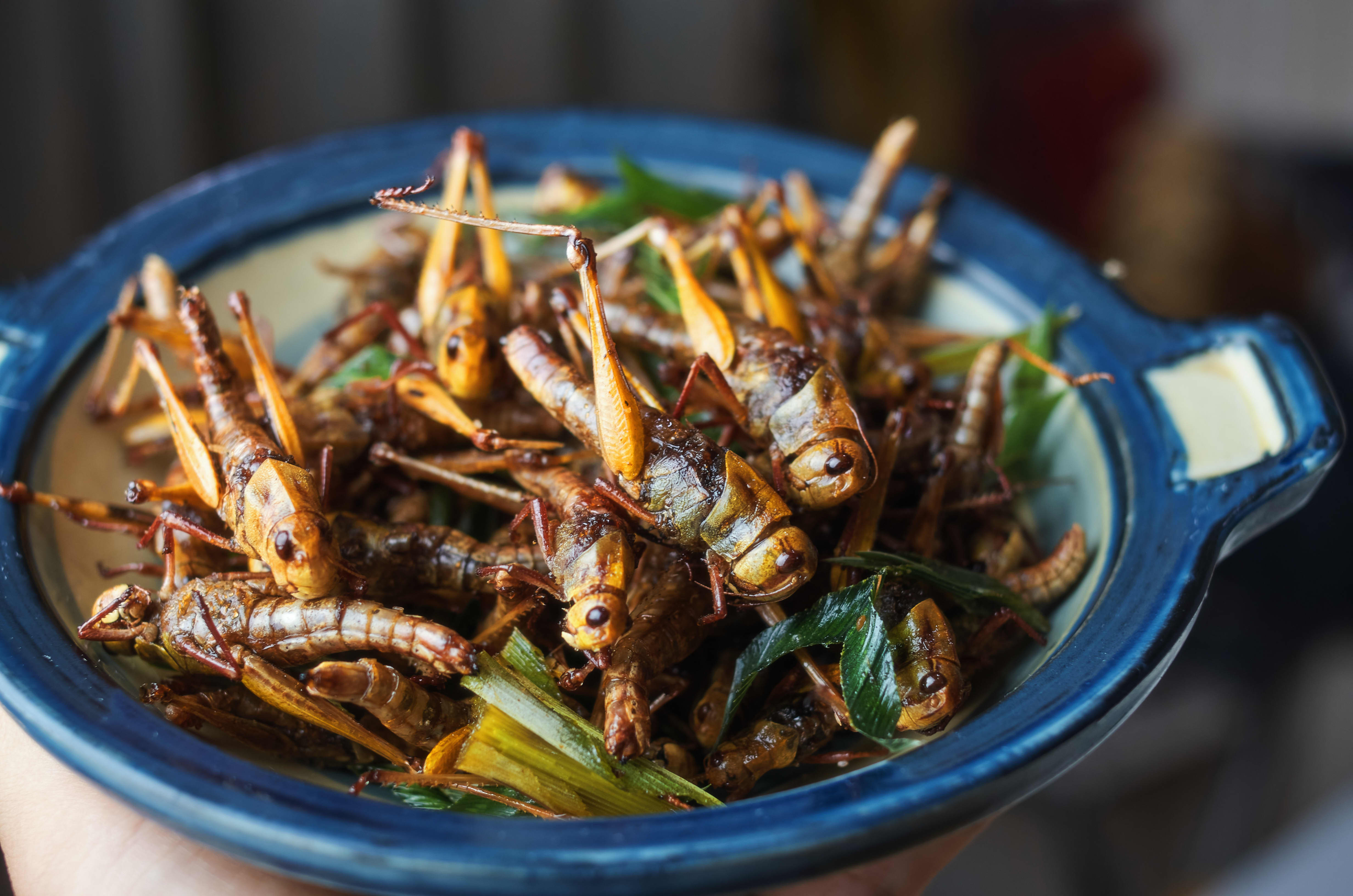
From locusts to superworms to honey bees, Singapore has approved 16 species of insects for human consumption.
“With immediate effect, SFA will allow the import of insects and insect products belonging to species that have been assessed to be of low regulatory concern,” the Singapore Food Agency said in a statement.
The agency said the following list of approved bugs can be imported for both human consumption and animal feed for food producing animals.
- Western honey bee/European honey bee
- Silkworm/silk moth
- Lesser wax moth
- Honeycomb moth/greater wax moth
- Giant Rhino beetle grub
- Whitegrub
- Mealworm
- Lesser mealworm
- Superworm beetles/giant mealworm beetle/king mealworm
- Grasshopper
- American desert locust/desert locust
- African migratory locust
- Black/field cricket/two-spotted cricket
- Common/field cricket
- Banded cricket
- House cricket
Some local restaurants and retailers have already made plans to add insects to their offerings.
Sustainability-focused Gastrobar Fura had said it would feature insect proteins on its menu following SFA approval. Insectyumz celebrated the approval and said it would import, distribute and sell a range of edible insects. Seafood restaurant House of Seafood also introduced a selection of “intriguing insect dishes” alongside its current menu.
Singapore’s food agency acknowledged that the country’s insect industry is “nascent” and that the critters are a new food item in the city-state. But in announcing a regulatory framework for edible insect imports, the SFA emphasized its priority was ensuring the safety of food consumed in Singapore.
The guidelines stipulate that the insects cannot be harvested from the wild and must be manufactured in regulated premises. SFA said that in its consideration of new insects for consumption, they must have a documented history of consumption as food outside of Singapore.
The United Nations’ Food and Agriculture Organization has promoted insects as alternative protein sources which are also more sustainable as their cultivation emits less greenhouse gases than traditional animal livestock.
“Edible insects contain high quality protein, vitamins and amino acids for humans,” the FAO said, adding that insects require less feed than sheep or cattle to yield an equivalent amount of protein.
The SFA noted that other countries already allow insect consumption, including Australia, South Korea, Thailand and the European Union.
Source: CNBC
